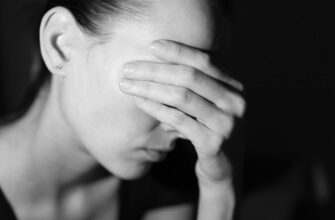
Alcohol and Sleep Disorder
According to research, drinking alcohol often may make several sleep problems worse, including insomnia, sleep apnea, and REM sleep disorder.
Insomnia and Alcohol
Mild to chronic insomnia, a common sleep problem characterized by difficulties falling asleep, remaining asleep, or receiving restorative sleep, affects up to 30% of Americans[1]. People who have insomnia often battle with fatigue and lackluster memory or focus.
Alcohol may make insomnia worse since it often results in fragmented sleep, nightly interruptions, and a general decline in sleep quality. People who suffer from insomnia already struggle to maintain regular sleep and waking cycles. Dr. Hsu adds, “However, this rule generally applies to those who often drink considerable quantities of alcohol. Adding alcohol to the mix would only make things worse. In other words, someone who has never had insomnia before is unlikely to get it from a glass of wine at dinner.
When people have trouble falling asleep, they often resort to alcohol. While this could be effective in the near term, more alcohol is often required to achieve this over time. This may make insomnia worse and make it more difficult to manage. This method has the potential to cover up an underlying sleep condition, such as obstructive sleep apnea, which may be what initially led to the sleeplessness.
Sleep Apnea and Alcohol
A common disease called sleep apnea causes breathing to stop and resume regularly while you sleep, which reduces the quantity of oxygen your body receives. People who have sleep apnea commonly snore, gasp for breath while they’re sleeping, and wake up many times during the night. Even if you seemed to sleep the whole night, you can wake up feeling exhausted, sleepy, and under the weather.
Because it relaxes the muscles in the throat, collapses the upper airway, and reduces oxygen levels, alcohol worsens the consequences of sleep apnea. This may not only exacerbate pre-existing sleep apnea but also cause bouts of sleep apnea in those who have never had it before.
Chronic sleep apnea may have a significant negative effect on your quality of life and raise major health issues, including weight gain and obesity, hypertension, stroke, memory loss, and heart failure, if it is not addressed.
REM Sleep Disorder and Alcohol
There are four stages of normal sleep, two of which are known as rapid eye movement (REM) sleep and the other as non-REM sleep.
- Stage N1 (Non-REM): The lightest phase of sleep is this one. During this stage, it might be difficult to determine whether you’re genuinely sleeping or awake.
- Stage N2 (Non-REM): It is deeper than N1 sleep but is still regarded as light sleep. Spindles form when we sleep, which may serve to muffle noise so we can’t hear ourselves snoring.
- Stage N3 (Non-REM): The deepest sleep stage is this one. It is crucial for memory and is often the location of sleep walking, particularly in kids who get more N3 sleep than adults do.
- Stage 4 (REM): Brain activity rises during REM sleep, which results in vivid dreams that you could recall when you wake up. It is crucial for our mood and aids in the organization of our memory.
Rapid eye movement sleep behavior disorder (RBD), also known as REM sleep behavior disorder, is a condition in which sufferers have vivid, sometimes frightful nightmares when they are in the REM sleep state. This might lead to them vocally or physically acting out their dreams, which could result in strange sleep-related actions like kicking, flailing, leaping, or shouting.
Studies have indicated that alcohol or the withdrawal from alcohol might increase RBD and its symptoms, despite the fact that RBD can be linked to neurodegenerative diseases including Parkinson’s disease, Lewy body dementia, and multiple system atrophy (MSA). OSA may also result in pseudo-RBD, and if the sleep apnea is addressed, the dream reenactment usually disappears.








